Testimonies from young people in lockdown - Bangladesh
EYW youth in Bangladesh have organized to fight the spread of Covid-19 and to support vulnerable people in their communities. In these inspiring testimonies, three young people talk about the impact of lockdown on their lives and describe how they’re responding.
We have found ourselves more united
Nazrul Islam
Hi! I’m Nazrul Islam from Khulna in Bangladesh. I’m a youth volunteer and member of an EYW youth group. My family and I are still safe from coronavirus, but the situation in my community is not pleasant at all. Many people haven’t enough food because they have lost their source of income. The main challenges are to ensure food for all, maintain social distance in public spaces and ensure people’s safety.
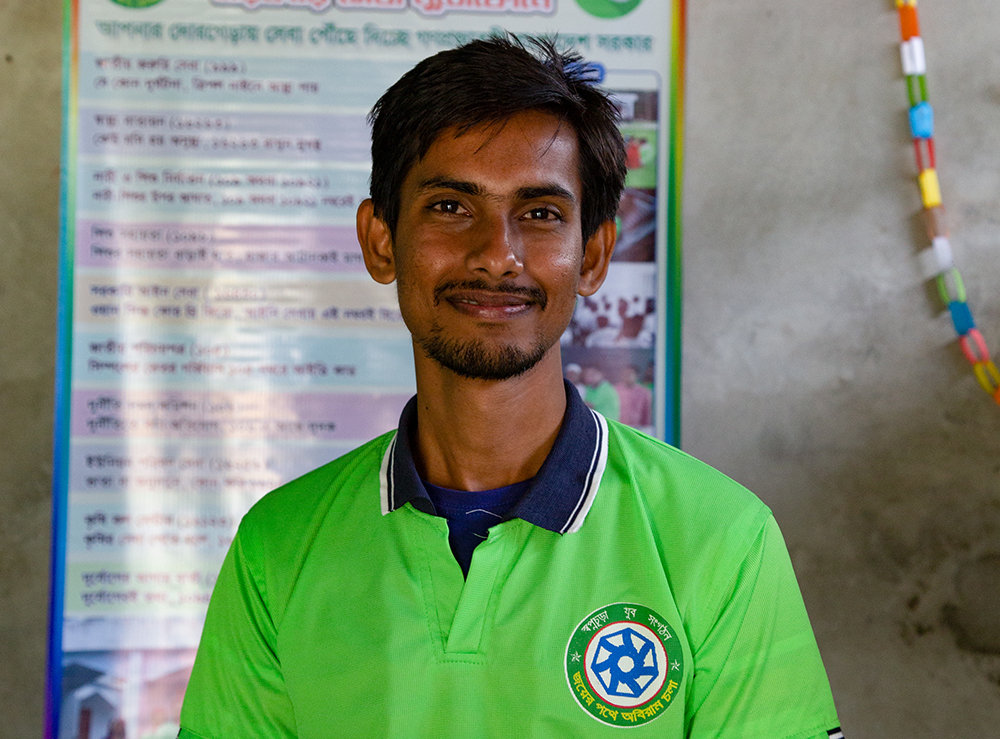
Photo credit: Tonmoy Ghosh
Students are having problems completing their academic year, and online education systems are not fully not workable in rural contexts, where internet connectivity is a major concern. Domestic violence has increased in some places around my community. Problems of unemployment and violence were there before, but in the current situation they have increased.
People learn how to survive in such situations – how they can act together to fight against all odds
Young people from our groups have been part of initiatives to fight against Covid-19. We are working to raise awareness among the community through ‘miking’ (broadcasting health messages from a loud speaker in a van], distributing masks, raising awareness in public and market spaces about maintaining social distance, distributing leaflets on Covid-19, ensuring home quarantine for people returning from abroad, and sharing regular updates with the local administration and police. We are also disinfecting public spaces and assisting the local government in distributing food to people in need. Personal hygiene practices could be the best way to handle the virus.
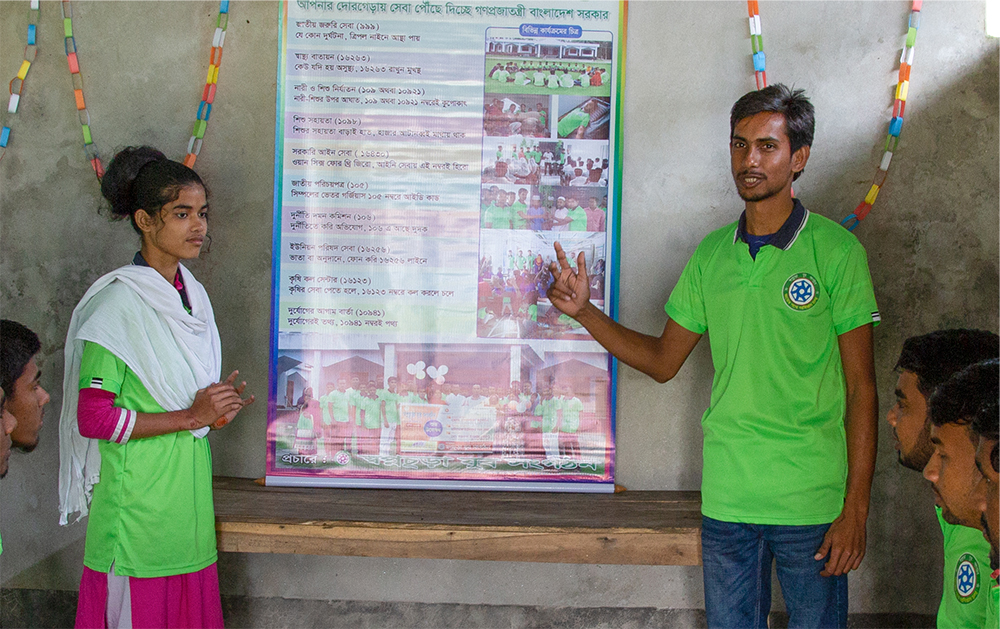
Photo credit: Tonmoy Ghosh
There are so many young entrepreneurs whose businesses are affected in this period. They need financial support to recover their loss, and also some specific training to develop business skills.
Nature is recovering
The government centrally took lots of initiatives, but this didn’t reach rural people effectively due to a coordination gap. It is important to fight this situation through coordination with each sector. The positive things are that people are more aware about personal hygiene practices, and they need to continue this. Nature is recovering, and people are now doing most things online. People learn how to survive in such situations – how they can act together to fight against all odds. Togetherness is the best thing, and leads towards a happy future.
Sharmin Sultana
I’m Sharmin Sultana Mukta and I live in the Barisal district of Bangladesh. Currently I’m doing my Master’s Degree. I’m also a youth reporter and a member of my Ward group and the Union Apex Body of the EYW project.
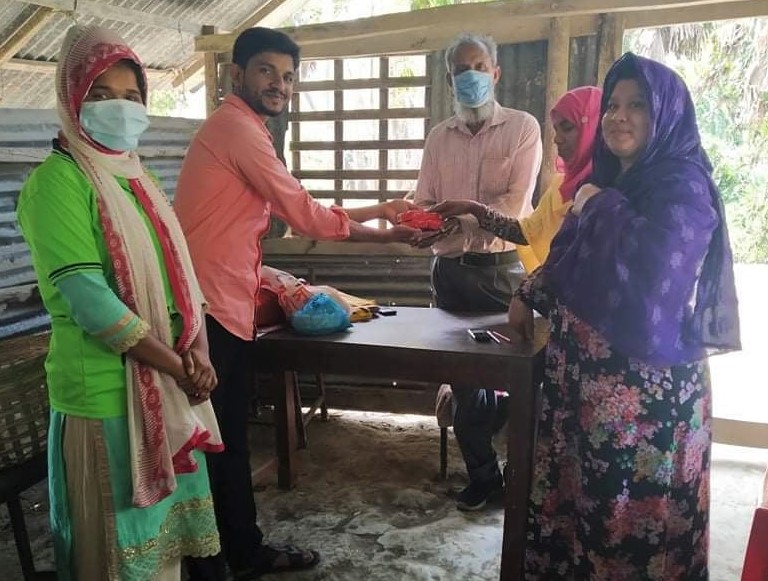
Photo credit: Swapnochhowa Youth Organization,
Sharmin (left on the picture)
My family and I are still safe and healthy. But the situation around us is different. Schools, offices and business have been closed since lockdown started. Because of this, people have no work, no income, and are not able to manage their regular livelihood properly. Food availability and ensuring a regular source of income have become the biggest challenges for my community.
The education system is broken
Alongside this, the education system has broken. Some students have had to stop education as their family members have lost their job and don’t know when they will get back to work. Unreported domestic violence has increased. Another challenge in the current context is to use face masks properly and maintain social distancing. Somehow people will be able to survive this situation, but for many the recent Cyclone Amphan destroyed the last ray of hope as their crops, livestock and houses were damaged.
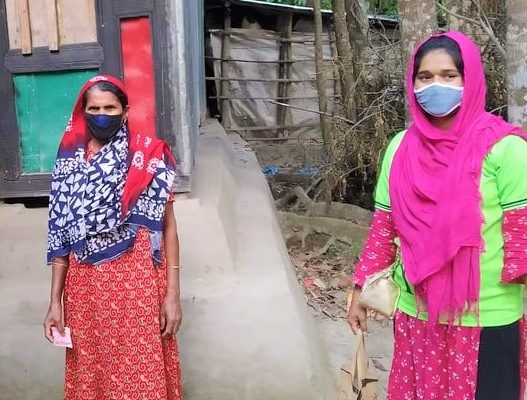
Photo credit: Swapnochhowa Youth Organization,
Sharmin (right on the picture)
My youth group members and I are working hard to make people aware about Covid-19 by following the guidelines of WHO and local government. We have distributed masks, soap and leaflets to marginalized people in our community. People need to listen and follow the instructions carefully, people can only protect themselves from the virus. So self-hygiene practice is important.
Nature is being healed
We are trying to make people aware of the virus; some are following the advice and some are not, with no reason. The government is providing relief, which is good, but they do not have any particular list or assessment to identify vulnerable groups. And people are not following rules during the receiving and giving of relief items, which increases the risk of infection. But the positive side of this virus is that nature is being healed, pollution is reduced, and people are spending more time with their family.
After this situation, people will be more responsible with regard to wasting natural resources, unnecessary consumption will be reduced, and the government will maybe take some initiatives to recover agricultural-based development.
Munjur Rahman
Hello, I’m Munjur Rahman Shakib, I live in Rajshahi and I’m doing a Masters in Information and Technology. I’m a youth member of the Union Apex Body and Ward youth group, and peer facilitator under Oxfam’s EYW project. I have also been working as a youth volunteer during the Covid-19 response, along with the local government.
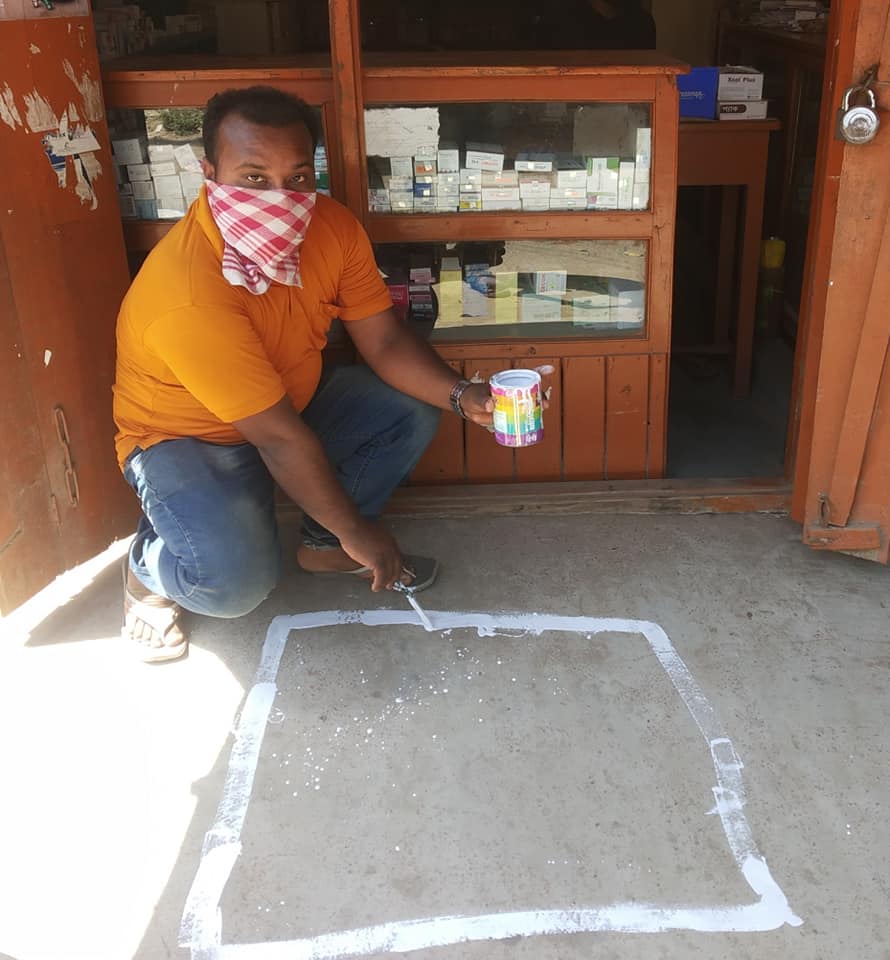
Photo credit: Rekha Khatun
Staying at home is the biggest challenge for rural people, because most of them are involved in daily wage activities. Maintaining social distancing, ensuring that there are meals for all family members three times a day, continuing regular education and participating in online education are also challenges during the Covid-19 crisis. Students couldn’t complete their study sessions on time, which means they might fall behind in the race to get government jobs, as there is age limit for applying for government jobs. So there is huge chance of an increased unemployment rate for youth and adults. This pandemic has also increased the rate of domestic violence and women’s responsibilities for unpaid care work, as people are mostly staying at home.
Positive things have happened
To fight against coronavirus, my EYW group members and I work together to make people aware of the virus. To raise awareness we have done ‘miking’ (broadcasting messages over a loudspeaker) from a van around the community, shared leaflets, ensured social distancing and home quarantine for those who have come from outside of the country, and shared updates with local government about the movements of people in the community. We have also worked as volunteers with local government to distribute relief to vulnerable people.
The government tried to deal with this pandemic, but there is still a lack of coordination in rural areas. Dealing with such a situation is new to everyone, including the government, so the response needs to be more organized and impactful at every level in terms of identifying vulnerable people and providing relief support. But overall the way the government has handled the situation is admirable.
Positive things have happened. People are more aware about personal hygiene and social manners. Their behavior has changed, the ecological system has improved, people are adapting to online communication, and people across the community feel more connected to each other as everyone is in the same state.
Hopefully people will be kinder
We have found ourselves more united and organized, which gives us courage to deal with any kind of critical situation. Hopefully people will be kinder and more respectful to each other, and will also understand the value of nature and how nature and humans can coexist without harming each other.
In our community, most of the youth are involved in small enterprises and in this situation their small businesses are going through huge losses which will be hard to recover alone. My request to Oxfam and the government is to support these young entrepreneurs to recover their losses.
The testimonies are based on interviews with EYW youth for the Podcast series 'Power in the Pandemic'. Listen to the episode: "Imagine something out of the box" How are young people responding to the pandemic?

